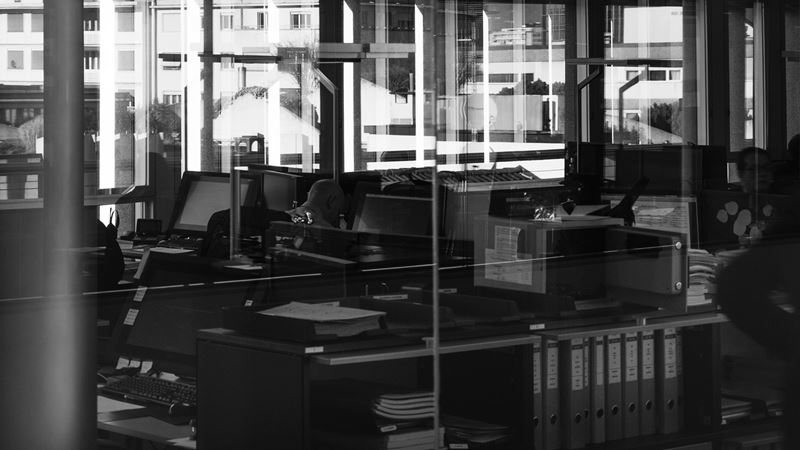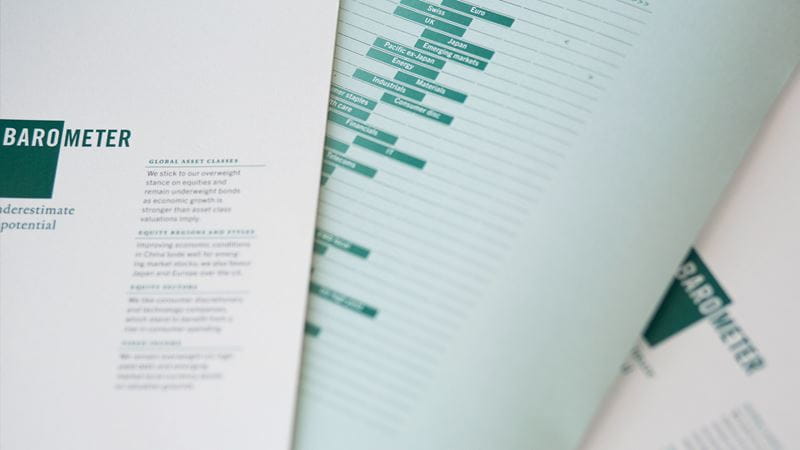Select your investor profile:
This content is only for the selected type of investor.
Individual investors?
War in Ukraine: the long-term consequences
Lionel Barber, the former Editor of the Financial Times, shares his insights on the war in Ukraine and its long-term geopolitical and macroeconomic consequences.
This crisis has been building for some time. Vladimir Putin is a master of destabilisation. He loves taking advantage if he senses weakness in the opponent. He is the one who miscalculated. The EU, which is often seen as bureaucratic and slow-moving, reacted with tremendous speed and decision once the invasion took place.
The crucial point is Putin’s sense of grievance that the West has taken advantage of Russia. I would go back to an interview that I had in the Kremlin in June 2019 – we had to wait five hours for the interview, and it started just before midnight. Putin clearly laid out that he felt the West was in terminal decline; the liberal idea, in his words, was “obsolete”. When I asked if his risk appetite had gone up after 20 years in power, he semi-denied it but then couldn’t resist looking at me with those chilling eyes and saying “Well, we have a saying in Russia - those who do not take the risks, do not get to drink the champagne”. He has decided, clearly, to take the risk of a full-scale invasion of Ukraine.
The Russian military has performed pretty abysmally in this conflict. The tactics were all wrong. Coordination between air, sea and land has been poor, they’ve had to install a new general. The Russian military has really been shown up.
There are some rumours in the Western media about Putin facing a challenge internally, but I am not sure we are there yet. [However,] no leader who feels totally secure feels it necessary, as Putin did just before the invasion, to summon his national security team and in effect on camera, ask for a loyalty oath. And there are one or two oligarchs who have spoken out.
Russia is a pariah. It’s isolated. These economic sanctions will take a long time to withdraw. When and if it comes to peace talks, the relief of sanctions is going to be an important part of any future accord and that is where the West and Ukraine have leverage over Russia.
What does Putin want? What are his war aims? And what is he going to do if he is thwarted? We still have to answer those questions. You can imagine that he might take Ukraine’s Eastern provinces, a lot of the Southern coast, enforce a blockade and then just sit there. He wouldn’t declare victory; he wouldn’t say he is retreating. What would Ukraine then do? I think they would continue to fight. Both sides believe they need to fight to gain ground, otherwise they will look like losers. If anything, there is a danger of Ukrainians being over-confident given how they performed in the first 11 weeks or so of the war.
Financial markets would be making a big mistake if they fail to recognise that this conflict is slowly escalating. New countries are coming in with a greater sophistication of weapon supplies to Kiev. And then, on the other side, there is Russia. It had a very poor initial phase, but it hasn’t yet deployed some of its most sophisticated weapons and there is danger of spillover (beyond Ukraine) if Russia tries to target some of the supply lines that the West is organising through bordering countries like Poland. I am not suggesting that there is going to be a spillover, but there is that risk. I don’t see this escalating into a nuclear conflict, but the use of chemical weapons is very possible.
Financial markets would be making a big mistake if they fail to recognise that this conflict is slowly escalating.
This is one of those moments that I would describe as “the hour of Europe”. This has been a huge wake up call for Germany and it’s fascinating to watch German opinion on militarisation fundamentally change. Germany is now going to have to take its defence much more seriously. (Former Chancellor) Angela Merkel’s legacy now looks much more fraught, more questionable. Her policy of wrapping Russia in a web of economic ties and therefore supposedly engendering better behaviour has not worked. And there are big questions about Germany’s dependence on Russian energy – which is also her legacy because she renounced nuclear energy and closed down plants. A coalition between Social Democrats, the Greens and the Free Democrats was seen as unworkable, but actually, although there have been one or two wobbles, overall Germany has moved. They are rearming, they are increasing defence spending and they’ve just agreed to send heavy weapons to Ukraine. Germany is a very different state from the Merkel years.
In France, Emmanuel Macron won (the presidential election) decisively and that is very, very important for maintenance of stability in Europe. I see a Franco-German relationship, a close one, still being the foundation of the European Union. But with one more condition. The big new player on the European scene is (Italian prime minister) Mario Draghi. He has pushed Italy into a leadership position on sanctions and he has just called, for example, for more majority voting in the European Council.
The big news is that Sweden and Finland are now applying to join NATO. Suddenly NATO’s Eastern flank is immeasurably strengthened. I don’t think that is what Putin would have calculated.
There is still some scope for further sanctions. The EU has proposed an oil ban, but there is no sign yet of a ban on gas exports from Russia, which is where the real money is. In terms of sacrifice, it was interesting that Draghi said we have a choice between freedom for Ukraine or more air conditioning this summer. That’s a very bold statement for the leader of a country which is almost totally dependent on Russian energy, bar some wind and sun. I think if there were to be a total ban you would be looking at a recession in the European continent certainly by Q4.
This is not the end of Europe’s net zero ambitions, but the process is going to be stretched out. You are not going to see the immediate gains that were foreshadowed in (the Climate Summit in) Glasgow. The Ukraine conflict has fundamentally altered perceptions, particularly in Europe, of energy dependence on Russia. Europe is going to be reducing its dependence on oil and gas, particularly oil. Areas too easily written off, like North Sea oil, may come back. You are going to see a much more nuanced debate on energy dependence and energy diversification.
China takes advantage of weakness. Beijing will definitely take advantage of Russian weakness. You may see Chinese investment in Russian energy companies after the war. Russia’s junior status vis-à-vis China in the 21st century would be underlined and confirmed.
Putin and Chinese premier Xi Jinping declared a partnership without limits (before the war). That was a big rhetorical commitment. But if you look at how China has so far behaved, it has not been sending heavy weapons to Russia and Chinese companies have been very careful because they are nervous about importing the sanctions. There may come a point when China does decide to do more to help Russia, but Xi has a very important party congress coming up later this year, where it is all down to his desire to secure a third term and also how many acolytes he can get in the politburo. And there are divisions of opinion in China over how far China should tilt towards Russia or the West. If you are Xi, you are probably going to see how it turns out.
The interesting test is what conclusions China will draw from this statement of Western resolve over Ukraine and will it last. If this war really goes on, what is going to happen in the winter when we may see a recession if these sanctions really bite and are intensified?



This marketing material is issued by Pictet Asset Management (Europe) S.A.. It is neither directed to, nor intended for distribution or use by, any person or entity who is a citizen or resident of, or domiciled or located in, any locality, state, country or jurisdiction where such distribution, publication, availability or use would be contrary to law or regulation. The latest version of the fund‘s prospectus, Pre-Contractual Template (PCT) when applicable, Key Investor Information Document (KIID), annual and semi-annual reports must be read before investing. They are available free of charge in English on www.assetmanagement.pictet or in paper copy at Pictet Asset Management (Europe) S.A., 15 avenue J.F. Kennedy, L-1855 Luxembourg, or at the office of the fund local agent, distributor or centralizing agent if any. The KIID is also available in the local language of each country where the compartment is registered. The prospectus, the PCT when applicable, and the annual and semi-annual reports may also be available in other languages, please refer to the website for other available languages. Only the latest version of these documents may be relied upon as the basis for investment decisions.
The summary of investor rights (in English and in the different languages of our website) is available here and at www.assetmanagement.pictet under the heading "Resources", at the bottom of the page.
The list of countries where the fund is registered can be obtained at all times from Pictet Asset Management (Europe) S.A., which may decide to terminate the arrangements made for the marketing of the fund or compartments of the fund in any given country.
The information and data presented in this document are not to be considered as an offer or solicitation to buy, sell or subscribe to any securities or financial instruments or services.
Information, opinions and estimates contained in this document reflect a judgment at the original date of publication and are subject to change without notice. Pictet Asset Management (Europe) S.A. has not taken any steps to ensure that the securities referred to in this document are suitable for any particular investor and this document is not to be relied upon in substitution for the exercise of independent judgment. Tax treatment depends on the individual circumstances of each investor and may be subject to change in the future. Before making any investment decision, investors are recommended to ascertain if this investment is suitable for them in light of their financial knowledge and experience, investment goals and financial situation, or to obtain specific advice from an industry professional.
The value and income of any of the securities or financial instruments mentioned in this document may fall as well as rise and, as a consequence, investors may receive back less than originally invested.
The investment guidelines are internal guidelines which are subject to change at any time and without any notice within the limits of the fund's prospectus.
The mentioned financial instruments are provided for illustrative purposes only and shall not be considered as a direct offering, investment recommendation or investment advice. Reference to a specific security is not a recommendation to buy or sell that security. Effective allocations are subject to change and may have changed since the date of the marketing material.
Past performance is not a guarantee or a reliable indicator of future performance. Performance data does not include the commissions and fees charged at the time of subscribing for or redeeming shares.
Any index data referenced herein remains the property of the Data Vendor. Data Vendor Disclaimers are available on assetmanagement.pictet in the “Resources” section of the footer.
This document is a marketing communication issued by Pictet Asset Management and is not in scope for any MiFID II/MiFIR requirements specifically related to investment research. This material does not contain sufficient information to support an investment decision and it should not be relied upon by you in evaluating the merits of investing in any products or services offered or distributed by Pictet Asset Management.
Pictet AM has not acquired any rights or license to reproduce the trademarks, logos or images set out in this document except that it holds the rights to use any entity of the Pictet group trademarks. For illustrative purposes only.

